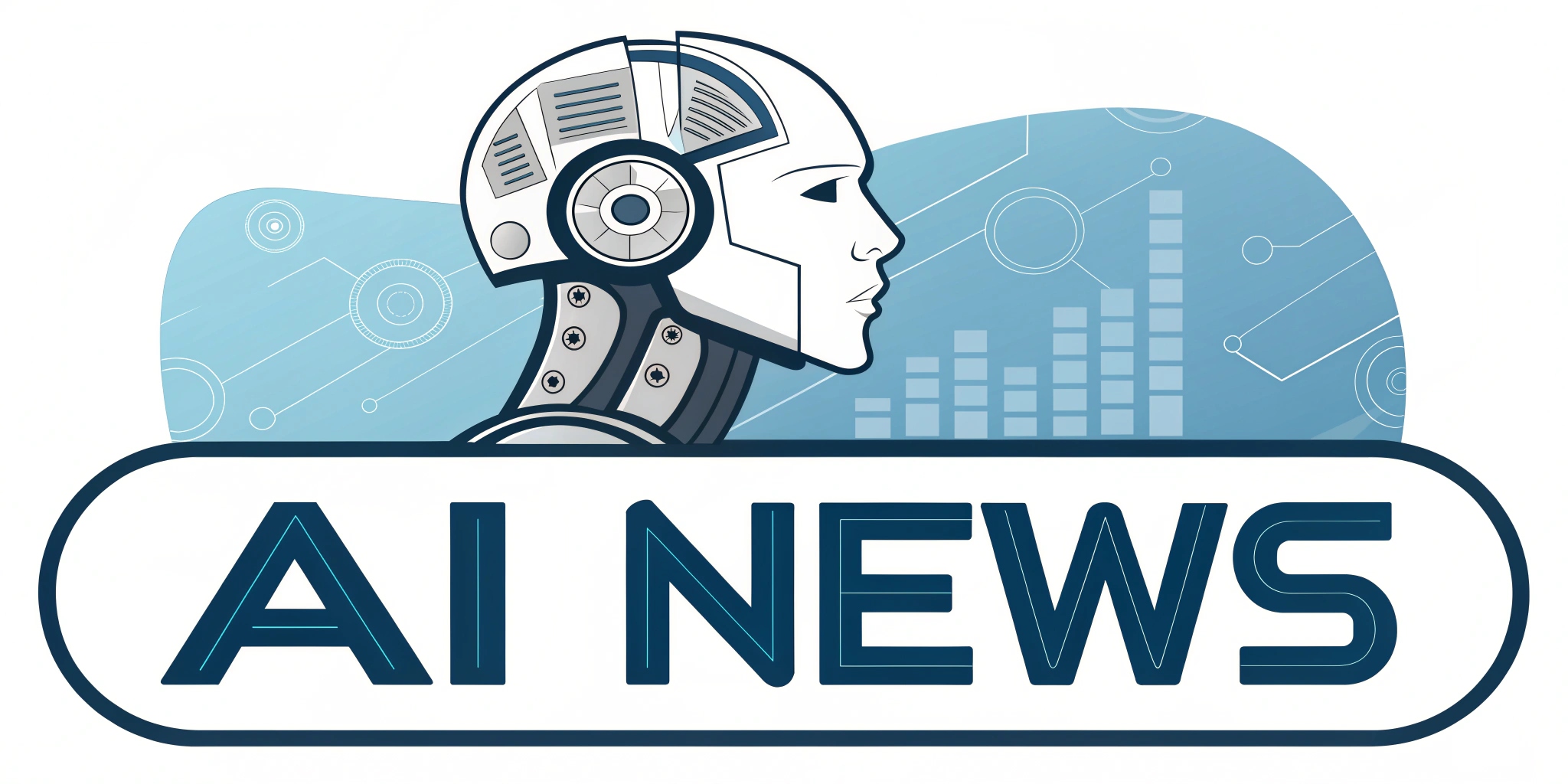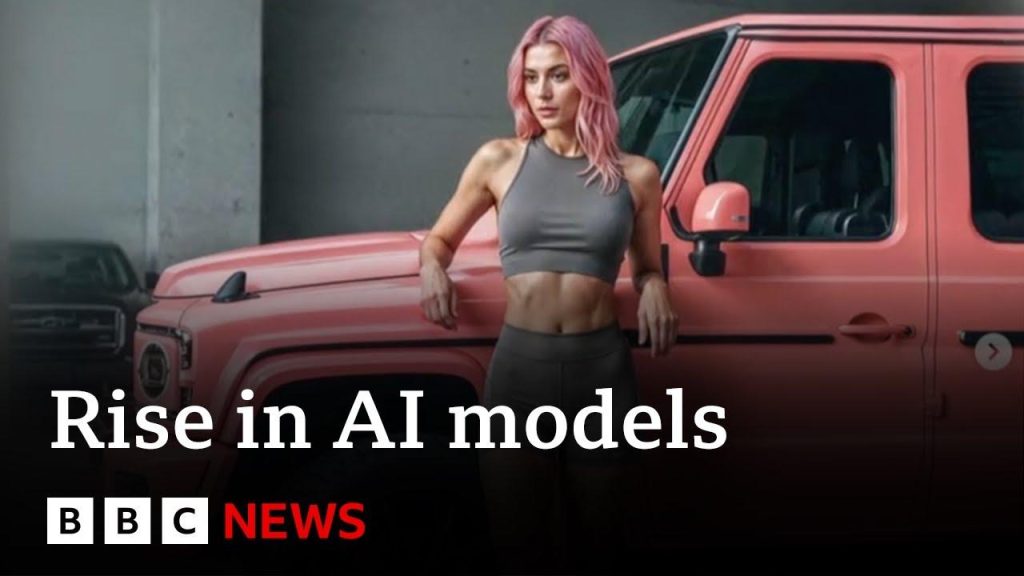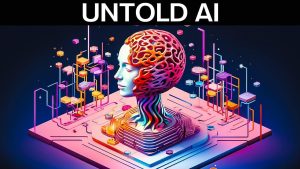In an era where the lines between reality and digital creation continue to blur, artificial intelligence influencers are rapidly emerging as a disruptive force within the world of social media marketing. With AI models like itana gaining popularity and amassing impressive followings,they are increasingly attracting lucrative sponsorships that rival those of conventional human influencers. The BBC’s cyber correspondent Joe Tidy recently reported on this intriguing phenomenon, profiling itana, an AI model known for her striking pink hair. Created just a year ago, itana has captivated audiences, particularly a predominantly male demographic, while raising questions about the implications of such digital personas on societal beauty standards.As agencies and brands explore the potential of AI-generated influencers,concerns are growing regarding the unrealistic ideals these figures may promote,especially among impressionable young audiences. As the industry evolves, brands are beginning to embrace a wider range of representations, yet the allure of the “perfect” digital model remains strong, illustrating the complex interplay between technology, marketing, and self-image in today’s digital age.
Emergence of AI Influencers in the Digital Landscape
The rise of AI-generated personas has given birth to a new paradigm in social media, where algorithms create content that resonates with users on a monumental scale. These digital influencers are not merely tools for marketing; they exemplify a shift in how brands approach engagement. Companies are leveraging the unique ability of AI to analyze data and craft messages that are hyper-targeted, resulting in campaigns tailored to specific audience preferences. This expedites the promotional process and can lead to significant monetary gains, but it also raises questions about authenticity and the emotional connections these synthetic entities can forge with human followers.
As discussions about ethical considerations become more prevalent, industry experts are urging careful scrutiny of the role that AI influencers play. Fundamental issues include the transparency of ownership in these digital identities, the potential manipulation of follower sentiments, and the broader impact on societal values regarding beauty and lifestyle. High on the agenda is the need for guidelines that address the responsibilities of brands and platforms in promoting transparency about AI’s role in influencer marketing. Stakeholders are encouraged to consider how these innovations could redefine interpersonal relationships and cultural perceptions, particularly among younger audiences who may not fully comprehend the distinction between human and AI-created content.
Impact of AI Models on Beauty Standards and Self-Image
The emergence of digitally crafted personalities has a profound effect on how beauty is perceived in contemporary society. Many individuals, particularly the youth, are increasingly exposed to stylized images of perfection, which are often the result of complex algorithms that enhance various features, creating an idealized version of beauty. This exposure raises concerns about self-esteem and body image as young audiences strive to meet these often unattainable standards, potentially leading to a disconnect between reality and digital appearances. Research indicates that when users engage with content featuring AI models, they may internalize inflated ideals, which can exacerbate feelings of inadequacy or dissatisfaction with their own appearances.
Moreover, these AI influencers are driving conversations around inclusivity and diversity within the beauty spectrum.While they can challenge traditional notions by presenting a wider array of looks—ranging from diverse skin tones to various body types—their very creation often still embodies a narrow definition of beauty, curated through the lens of algorithms that prioritize certain traits. As such,there is a growing recognition of the need to establish ethical standards around the portrayal of beauty in this new digital era. Stakeholders must be vigilant in questioning the narratives that these AI-generated images promote, taking into account how they affect self-image and the overall landscape of beauty expectations, thus ensuring that the digital age supports more authentic representations rather than perpetuating harmful stereotypes.
The Business Model Behind AI Influencer Sponsorships
Brands are increasingly turning to AI influencers not only for their ability to reach vast audiences but also for the precision and efficiency they bring to advertising strategies. Unlike human influencers,digital personas can be designed to align closely with specific brand values and target demographics,resulting in highly personalized marketing campaigns. This personalized approach is facilitated by sophisticated algorithms that analyze user behavior,allowing companies to craft messages that resonate deeply with audience segments. Key advantages of this model include:
- Cost-Effectiveness: AI influencers can reduce expenses associated with human talent management, making sponsorships more attractive to brands.
- Scalability: Companies are able to deploy multiple AI influencers concurrently to reach a broader audience across various social media platforms.
- Consistent Performance: AI models do not face personal challenges or fatigue, ensuring a uniform output in their promotional endeavors.
Though, this shift toward AI-generated sponsorships generates critical discussions about the ethical implications of outsourcing authenticity to algorithms. The lack of human emotion and experiences in AI interactions raises questions about the depth of connections between consumers and these digital entities. As brands navigate this complex landscape, the transparency regarding the nature of AI personalities becomes crucial. Concerns about deceptive marketing practices and emotional manipulation can arise when followers form bonds with entities they believe to be genuine.Thus, the industry must prioritize establishing clear guidelines that delineate the role and responsibility of AI influencers, ensuring that consumer trust remains intact amidst these evolving marketing practices.
The Need for Diversity and Representation in AI Models
The implementation of artificial intelligence in influencer marketing raises critical questions about the impact of representation on diverse audiences. While AI models have the capacity to create a plethora of virtual personalities,the choice of features and characteristics often remains limited to what algorithms assess as optimal according to prevailing beauty norms.This results in the risk of reinforcing existing biases and creating a homogenized perception of beauty that does not reflect the richness of human diversity. Consequently, brands and creators must actively ensure that these digital avatars are more than mere reflections of a narrow aesthetic, but rather push toward inclusion that resonates with various demographics. Failure to do so could amplify feelings of alienation among those who see themselves underrepresented or misrepresented in this emerging digital landscape.
Addressing this need for a broader range of representations necessitates collaborative efforts between technologists, marketers, and social advocates to foster an environment where AI-generated influencers serve as beacons of authenticity rather than as unrealistic ideals. Drawing from an array of backgrounds can aid in the creation of AI personas that genuinely connect with their audience, transcending conventional stereotypes. By integrating diverse perspectives from multiple cultural and social narratives, creators can mitigate the risk of perpetuating harmful standards. This holistic approach will not only benefit consumers but also elevate brand integrity and foster deeper relationships with varied follower bases, ultimately redefining the ethical landscape of influencer marketing in the age of AI.























